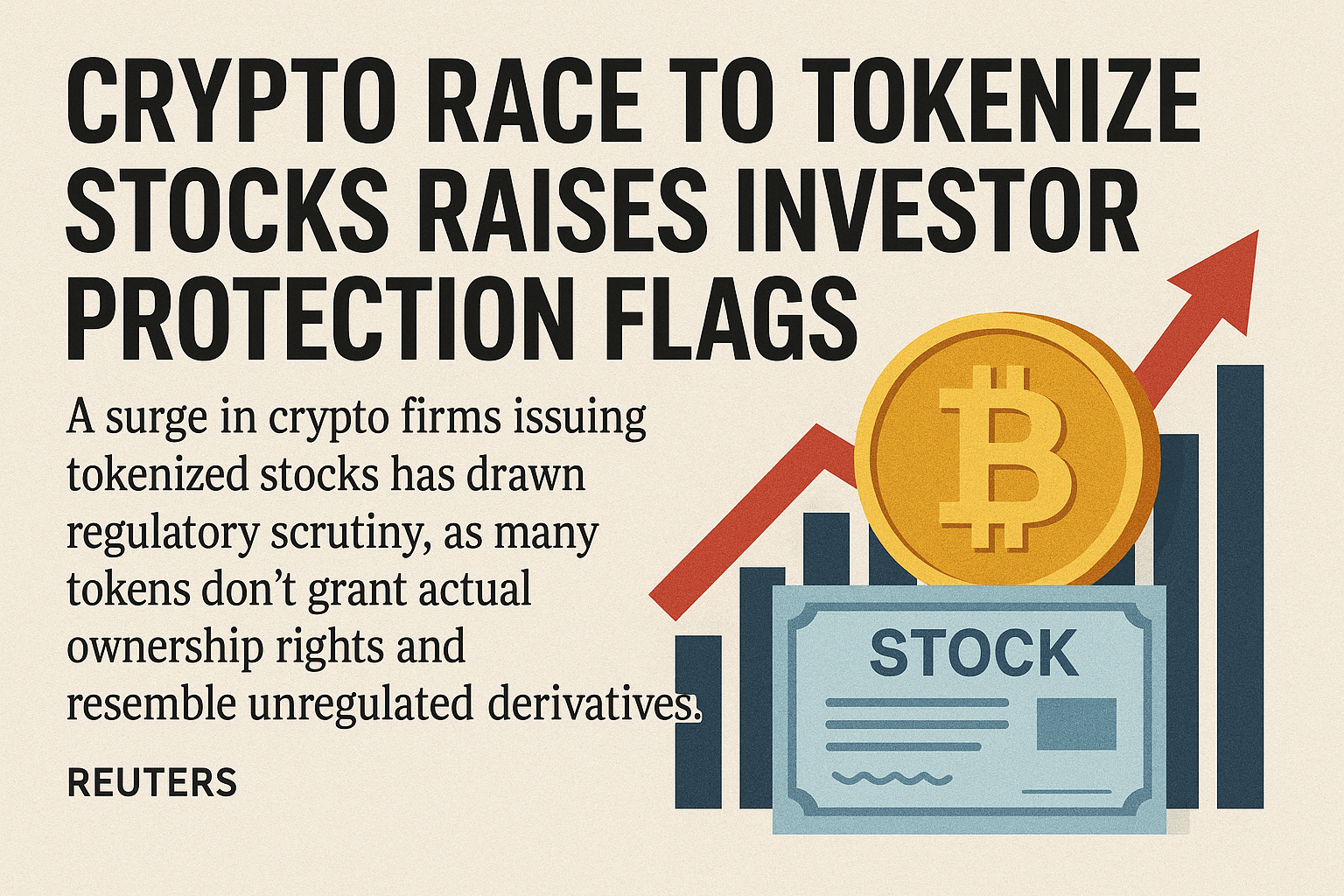The rapid expansion of crypto firms offering tokenized stocks is reshaping the boundaries between traditional finance and decentralized technology. But as with many disruptive trends, innovation has arrived faster than regulation — raising concerns about investor protection, transparency, and the true nature of these digital assets.
What Are Tokenized Stocks?
Tokenized stocks are blockchain-based representations of real-world equities like Apple, Tesla, or Amazon. Instead of buying shares on a traditional exchange, investors can purchase digital tokens that supposedly mirror the price of the underlying asset.
In theory, this gives users global, 24/7 access to stock markets — no brokers, no national restrictions, no waiting for market hours.
However, in practice, many of these tokens don’t actually confer ownership rights to the real stock. Investors often don’t hold any claim on dividends, voting rights, or even the shares themselves. The tokens are frequently synthetic derivatives — digital contracts tracking a stock’s value, rather than pieces of it.
Regulators Raise the Alarm
Authorities worldwide, including the U.S. Securities and Exchange Commission (SEC) and the European Securities and Markets Authority (ESMA), are closely monitoring this emerging sector. Reuters reports that regulators are particularly concerned about tokens that mimic regulated assets but operate outside traditional oversight.
For example, when a crypto platform issues a “tokenized Tesla share,” the buyer might believe they own part of Tesla — but in reality, they own a digital IOU with no legal backing.
This lack of clarity can expose investors to significant risks, especially if an issuing platform collapses or halts redemptions, as seen during the 2022 crypto market crash.
Why Tokenization Still Matters
Despite these red flags, tokenization remains one of the most promising innovations in modern finance. When done correctly and transparently, it can unlock liquidity, democratize access to previously restricted assets, and streamline settlement across borders.
Financial giants like BlackRock, HSBC, and JPMorgan are exploring regulated tokenization frameworks — aiming to bring the efficiency of blockchain to real-world securities, bonds, and funds. These institutional moves contrast sharply with the more speculative projects that regulators are now targeting.
A Crossroads for the Industry
The tokenization trend embodies a core crypto paradox: the same tools that can enhance financial inclusion can also amplify risk when left unregulated.
The race to tokenize everything — from real estate to equities — is creating new opportunities but also exposing the cracks in crypto’s legal and operational foundations.
Until global standards catch up, investors should tread carefully. Transparency, regulatory compliance, and clear asset backing will separate legitimate tokenization platforms from speculative, high-risk experiments.
The Bottom Line
Tokenized stocks represent a glimpse into the future of finance — a world where ownership and access transcend borders. Yet, the current wave of unregulated offerings serves as a stark reminder that technology alone doesn’t guarantee protection or fairness.
As the crypto industry races ahead, the challenge for regulators and innovators alike will be to balance the spirit of decentralization with the safeguards that traditional finance has spent decades building.
Only then will tokenization truly fulfill its promise as the next generation of global investing.




